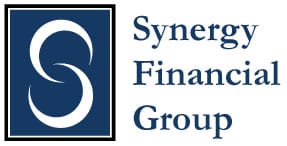Mortgages aren’t just handed out like free toasters at a bank. On the contrary, before lenders fork over that big bundle of cash that you need in order to buy a home, they’ll size you up carefully to try to determine whether you’re worth the risk. And to do so, they’ll take a hard look at your financial past, scanning for signs that you’re a good or bad bet.
Yup, it can be a stressful process (for you, not for them). But before you freak out entirely, be aware that not all financial misdeeds are created equal. Some are mere blips, while others spell thermonuclear disaster. So which is which? Here’s a rundown of the top mortgage approval land mines, ranked from least to most serious.
Student debt
Risk level: 1/10
Student debt in itself is no biggie at all, says Mark Yecies of SunQuest Funding in Cranford, NJ. However, lenders will raise an eyebrow if they see signs you’re struggling to pay it off. That means late payments are a no-no.
Employment changes
Risk level: 2/10
Lenders definitely like to see worker bees with a solid record of gainful employment. If you’ve recently changed jobs, that’s not necessarily bad, because people job-hop all the time—as long as it’s roughly in the same line of work and compensation level, lenders won’t blink an eye.
That said, employment status changes can give them pause. If you had a full-time staff job that paid W-2 income and become a 1099-compensated “consultant,” you become technically self-employed. As such, lenders will typically want to see two solid years of income history before they’re comfortable loaning you money.
If you are newly self-employed, you might be able to secure mortgage financing with the help of a non-occupying co-borrower, but otherwise you might have to wait at least a year until you can document income on your tax return.
A mediocre credit score
Risk level: 3/10
Your credit score—that all-important numerical summary of how well you’ve paid off past debts—is akin to your SAT score when you were applying to college. For better or worse, it’s a tool that helps lenders quickly judge your financial worthiness.
Scores can run the gamut from stellar to average to subpar, so your riskiness in the eyes of the money guys depends on where you fall on that spectrum.
Typically, a “good” credit score is considered to be 700 and up (a perfect score is 850), which should qualify you for the best interest rates and other perks. On the lower end, the minimum credit score you’ll usually need to be considered for a mortgage is 660. The lower the score, the higher the interest rates you’ll be saddled with. If you have a score in the low 600s or below, get to work on improving it. With some diligence and patience, there are plenty of ways to boost your credit score.
Inaccurate disclosure of income
Risk level: 4/10
Of course you know how much money you make, right? Well, if that number’s not so clear-cut from a lender’s point of view, it can land you in trouble.
“In many cases, borrowers state their income inaccurately because they don’t actually know how much money they make,” says Yecies. “They may think they do, but don’t realize that for mortgage purposes, bonus, overtime, and commission are calculated separately from base employment income, which is what lenders are really scrutinizing. For self-employed borrowers, calculation of base income can be even more complex.”
So be sure to accurately portray your income and separate out your bonuses, overtime, and other details rather than lumping them all together hoping for a higher total.
Undeclared ‘help’ with your down payment
Risk level: 5/10
Have a great uncle who’s loaded and would like to pitch in to help defray your home-buying costs? Congrats! But make sure to declare this money as a gift, or it could hurt more than help.
There are rules for where down payment money can come from, so if there’s a large unidentified deposit lurking in one of your accounts, rest assured lenders will want to know how it got there. As such, you’ll need a letter from the donor delineating the amount, date of transfer, and assurance that these funds won’t require repayment.
Whatever you do, don’t fib or try to cover it up; lenders frown on that big-time.
Bankruptcy
Risk level: 7/10
Blame it on Monopoly, the Great Recession, or anything else, but bankruptcy is scary—it means you’ve thrown up your hands at some point in your past and declared that you were unable to pay off your debts. In real life (rather than a board game), bankruptcy can be a godsend if you’re really in over your head, because it allows you to start fresh. Nonetheless, it will make lenders leery … but not forever.
Once a bankruptcy is more than two years in the past, you’re back in the home-buying game; just be sure to re-establish a credit history and keep it sparkling clean with on-time payments.
Foreclosure
Risk level: 8/10
Bankruptcy is bad, but foreclosure is worse, at least in the eyes of a lender. To state the obvious: Because it means you were unable to pay your mortgage once, it doesn’t bode well for a new lender getting its money back, either. However, as with bankruptcy, time heals all wounds. Lenders will typically be open to reviewing your application around seven years after foreclosure, or just four years after a short sale (where you sell your home for less than you borrowed).
For more smart financial news and advice, head over to MarketWatch.
We are ready to help you find the best possible mortgage solution for your situation. Contact Sheila Siegel at Synergy Financial Group today.







